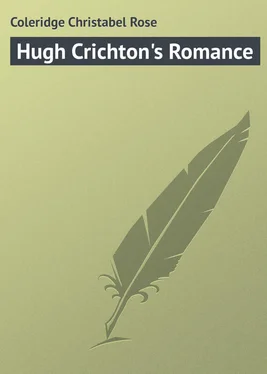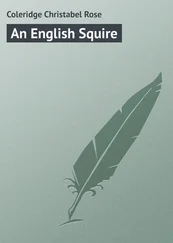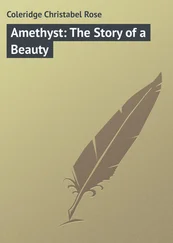Christabel Coleridge - Hugh Crichton's Romance
Здесь есть возможность читать онлайн «Christabel Coleridge - Hugh Crichton's Romance» — ознакомительный отрывок электронной книги совершенно бесплатно, а после прочтения отрывка купить полную версию. В некоторых случаях можно слушать аудио, скачать через торрент в формате fb2 и присутствует краткое содержание. Издательство: Иностранный паблик, Жанр: foreign_prose, на английском языке. Описание произведения, (предисловие) а так же отзывы посетителей доступны на портале библиотеки ЛибКат.
- Название:Hugh Crichton's Romance
- Автор:
- Издательство:Иностранный паблик
- Жанр:
- Год:неизвестен
- ISBN:нет данных
- Рейтинг книги:4 / 5. Голосов: 1
-
Избранное:Добавить в избранное
- Отзывы:
-
Ваша оценка:
- 80
- 1
- 2
- 3
- 4
- 5
Hugh Crichton's Romance: краткое содержание, описание и аннотация
Предлагаем к чтению аннотацию, описание, краткое содержание или предисловие (зависит от того, что написал сам автор книги «Hugh Crichton's Romance»). Если вы не нашли необходимую информацию о книге — напишите в комментариях, мы постараемся отыскать её.
Hugh Crichton's Romance — читать онлайн ознакомительный отрывок
Ниже представлен текст книги, разбитый по страницам. Система сохранения места последней прочитанной страницы, позволяет с удобством читать онлайн бесплатно книгу «Hugh Crichton's Romance», без необходимости каждый раз заново искать на чём Вы остановились. Поставьте закладку, и сможете в любой момент перейти на страницу, на которой закончили чтение.
Интервал:
Закладка:
She did not sing again, her father was very chary of her voice, and she did not come forward when the music was over, though Signor Mattei hoped “il signor” had been pleased, and Emily lingered, spite of her brother’s sign to her to make haste.
“Indeed,” said James, “I have been delighted; one does not often hear a voice like your daughter’s.”
“Her voice is good,” said the father, “but she does not give it a chance; she has no notion what study was in my day.”
“Oh, father!” said Rosa Mattei, as these words were evidently intended to reach the ears of Violante, who was standing at a little distance. “She does practise, but she is so soon tired. My sister is only seventeen,” she added to James; “and her voice is not come to its full strength yet.”
“She must not over-strain it – it is so beautiful,” said James, while Emily echoed —
“Oh, it is lovely! oh, cara Violante, come here and let us tell you how beautifully you sang.”
“Violante!” said her father; and she came towards them, while James on a nearer view saw how lovely were the curves of cheek and throat, and how delicate the outline of the still white features. With a view to hearing her speak, he thanked her for her song, and said —
“I suppose I need not ask you if you are fond of music?”
Violante cast down her eyes, blushed, and stammered out under her breath, —
“Yes, Signor, thank you;” while her father said, “My daughter is very glad to have given you pleasure, and very grateful to those who are kind enough to express it. You must excuse her, Signor, she is not used to strangers.”
The poor child looked ready to sink into the earth beneath this public notice of her bad manners. Hugh looked so stern and fierce that, had he asked the question, she might well have feared to answer him; but Emily broke the awkward silence by saying eagerly -
“You will come and give me my lesson to-morrow, Signorina Rosa? Will Violante come too?”
“I am afraid,” said Rosa, “that she will be too busy.”
“Ah, well, I shall see her if she does not see me, next Tuesday. Good-bye, Violante. Good-bye, Signorina.”
“Why!” exclaimed James, as they emerged into the street, “That poor girl looked frightened to death.”
“Oh,” said Emily, “she is always frightened before strangers. How ever she will sing on Tuesday I cannot think; but what do you think of her, Mr Crichton?”
“I think she is very pretty,” said James, rather dryly.
“A pretty little simpleton,” said Mr Tollemache: “but a month or two’s experience will make all the difference. It is to be hoped her father will take care of her. But I believe she has an admirer – the manager of the operatic company here – so I suppose she may be considered very fortunate. Her voice is valuable, and she will be very handsome.”
James nodded assent, but something in the thought of the young childish girl with her shy solemn face and frightened eyes touched him.
“It’s rather a case of ‘Heaven sending almonds to those who have no teeth,’ isn’t it?” he said. “Poor little thing!”
“Oh, the almonds will taste sweet enough, I daresay,” said Mr Tollemache. “If not, they must be swallowed, somehow.”
“Well,” said Emily, “on Tuesday we shall see how she gets on.”
Part 1, Chapter V
The Mattei Family
Then joining hands to little hands
Would bid them cling together,
For there is no friend like a sister
In calm or stormy weather.
“Violante! Will you never learn common-sense? Your want of manners will give perpetual offence. And let me tell you, English people of influence are not patrons to be despised. It is always well for a prima donna to have irreproachable private friends. If ever we should go to England, and the Signora Tollemache would notice you, it would be a great advantage; and not amiss that those young men should report well of you.”
“Oh, father!”
“Why! They see your name announced. They say, ‘Ah, Mademoiselle Mattei! We knew her in Italy – pretty – fine voice. My friend, you should go and see her.’ They take a bouquet and applaud you; and you become the fashion. You should be grateful, and show it. But you – you are a musical box! You sing like a statue, like a wax-doll. Ah, where is your fire and your expression? You have no soul – you have no soul!”
“Father, I did try.”
“Oh, I have no patience! Where is my music? I have a private lesson. Go and practise, child, and study your part better;” and off whisked Signor Mattei in a great hurry, and a much disturbed temper.
Such scenes had been frequent ever since one unlucky day, two years ago, when the great opera manager, Signor Vasari, had heard Violante sing, and had told her father that she promised to have the sweetest soprano in Italy, and he must educate her for the stage, where she would make her fortune. And the owner of this sweet soprano was so timid that her music-master made her tremble, and possessed so little dramatic power that she could scarcely give a song its adequate expression, and was lost when she attempted to act a part. But the music is all important in Italy, and the middle course of concerts and oratorios did not there lie open to her. Her father hoped that her voice and her beauty would carry off her bad acting, and that perpetual scolding would cure her fears, since he gloried in her talent, and much needed her gains.
He was, as has been said, fairly well born and well educated, and had chosen music as his profession. When quite young he had gone to England, where he played the violin in London orchestras, and gave private lessons on the piano. In England he fell in with a young lady, the daughter of a clergyman, who was governess in the family of Mr Tollemache’s uncle, where Signor Mattei taught. Rose Grey was unmistakably a lady, a quiet fair-faced girl, with her share of talent and originality and a passion for music. She fell in love with the handsome enthusiastic Italian, and, having no prospects and no friends to object, she married him. They lived for some time in England, where Rosa was born, and finally returned to Italy. The world went fairly well with them, but they were not without debts and difficulties, and when Rosa grew up, and Madame Mattei’s brother, now a London solicitor, wrote to offer her a year or two’s schooling in England, the proposal was gladly accepted, since she had no voice and could not be made useful at home. Rosa went to England, went to school, taught Italian and music, and learnt the usual branches of education, spent her holidays with her uncle, and finally helped to educate her cousins, till, three years before our story opens, her mother died, and Rosa came home to take care of the little Violante, a girl of fourteen. Rosa was then twenty-two, entirely English in manner, accent, and appearance, with pretty brown hair, a sensible face, bright hazel eyes, full of force and character, grave manners, a sweet smile, and a strong will of her own which she was not afraid to enforce if necessary. She had a warm heart, too, with nothing much just then to fill it. She almost idolised the little sister, who clung to her, sobbing out, “Oh Mamma mia!” and from that day forward guarded, petted, and, it must be confessed, spoiled her.
Violante was delicate and sensitive, with a certain Italian fervour of temperament beneath her timidity, which expended itself in the warmest affection for her sister. She was more Italian than Rosa in appearance, and though she spoke fluent English, and they used either language when together, her low sweet tones were unmistakably foreign. Her musical education was so pressed on her and took up so much of her time that she learnt little else, and at seventeen was sadly ignorant of much which she ought to have known.
Читать дальшеИнтервал:
Закладка:
Похожие книги на «Hugh Crichton's Romance»
Представляем Вашему вниманию похожие книги на «Hugh Crichton's Romance» списком для выбора. Мы отобрали схожую по названию и смыслу литературу в надежде предоставить читателям больше вариантов отыскать новые, интересные, ещё непрочитанные произведения.
Обсуждение, отзывы о книге «Hugh Crichton's Romance» и просто собственные мнения читателей. Оставьте ваши комментарии, напишите, что Вы думаете о произведении, его смысле или главных героях. Укажите что конкретно понравилось, а что нет, и почему Вы так считаете.












